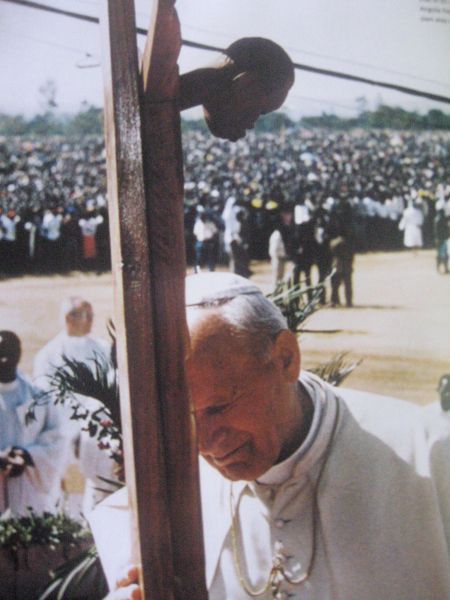Absolutely false as Origen recognized the Church as being "one body", and it had long been recognized by his time that the Bishop of Rome had a special place in helping to organize the Church and help with resolving disputes. Why would he call the Church "the scarlet thread that binds" if it were not generally organized?
The
Pentarchy was subverted by Rome post Chalcedon such that thereafter that there was no longer any reciprocal "inter pares" to the prior doctrine of primus inter pares. Rome was allowed to become fully dominant. Only the political conquest of Rome itself put a brake on its pretensions and ambitions. Once freed from its shackles the arrogance of Rome grew and grew till it was exterminating heretics with the sword in the 11th century.
Before that the history of early Christianity is a history of the ever growing enchroachmentof Rome. Thus in the beginning of the 2nd century, Ignatius, Bishop of Antioch, speaks of the Church of Rome as "presiding in the region of the Romans." In the end of that century, Pope Victor I threatened to excommunicate the Eastern bishops who continued to celebrate Easter on 14 Nisa
n, not on the following Sunday. Nonetheless the doctrine of primus inter pares held sway up until Chalcedon even if there was an increasing disparity between how Rome saw itself and how others saw Rome. But I agree Rome had a special place in Origen's time. But special does not mean the right to dictate every single doctrine, like it does today.
So to assume that in Origen's time (3rd century) the Christian world always looked to Rome, as the Catholic church does today, would be to misjudge the entire political scene. It was nothing like how it is today, except perhaps that after Constantine, Constantinople became second after Rome. The others faded.
And thank you for pointing out your dishonesty on this because many of the books involved were not part of the 27 canonized later, plus some that became part of the 27 he didn't accept in full. So, you lied, and the above is simply just another attempt to c.y.a. because Origen simply did not choose the 27 that were canonized later as you insisted he did. Why do you keep on lying over and over again while claiming you're Christian?
In
Homiliae on Josuam 7.1: Origen wrote "But when our Lord Jesus Christ comes, whose arrival that prior son of Nun designated, he sends priests, his apostles, bearing “trumpets hammered thin,” the magnificent and heavenly instruction of proclamation. Matthew first sounded the priestly trumpet in his Gospel; Mark also; Luke and John each played their own priestly trumpets. Even Peter cries out with trumpets in two of his epistles; also James and Jude. In addition, John also sounds the trumpet through his epistles [and Revelation], and Luke, as he describes the Acts of the Apostles. And now that last one comes, the one who said, “I think God displays us apostles last,” and in fourteen of his epistles, thundering with trumpets, he casts down the walls of Jericho and all the devices of idolatry and dogmas of philosophers, all the way to the foundation"
Thus he appears to be quoting an almost identical canon as Athanasius in 250BC.
Again, your use of stereotypes and bigotry and dishonesty demeans your own argument.
Again, just another pathetic lie as I've made it abundantly clear that I'm not Catholic. Have you no shame whatsoever?
Well even if you're not RC yourself, you take the RC position, which one would not do unless one had an affinity with RC. So no, I don't accept any shame. In any case, you are no protestant, that is for sure.

